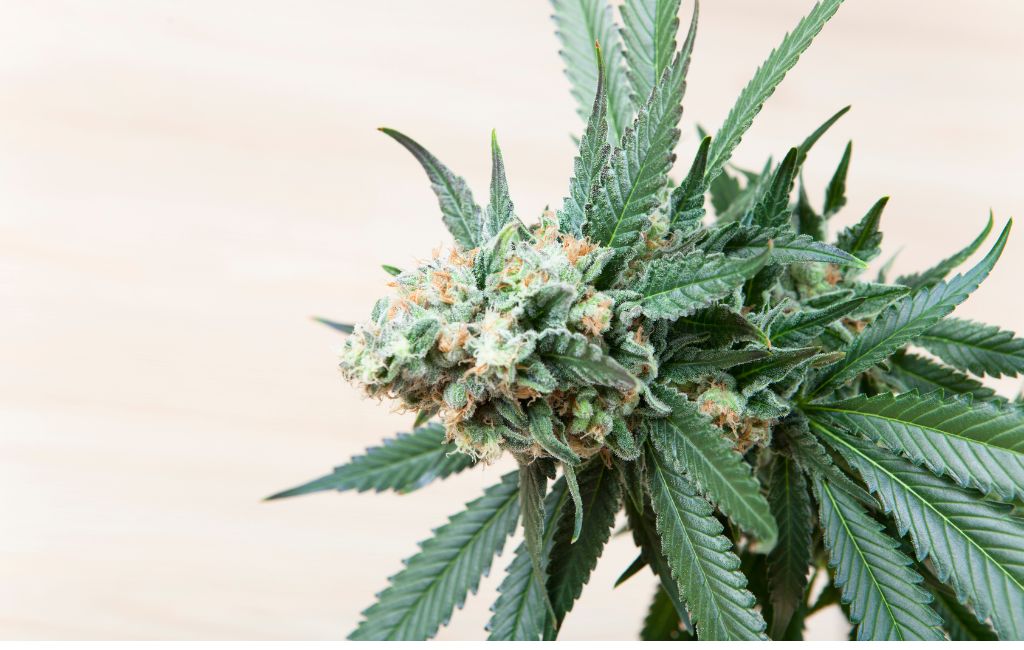THCa Flower: Unlock Healing Properties
THCa, or tetrahydrocannabinolic acid, is a non-psychoactive cannabinoid found in raw and live cannabis. Unlike THC, THCa does not produce a high, making it an attractive option for those seeking therapeutic benefits without the psychoactive effects. This article explores the healing properties of THCa flower, supported by research, examples, and case studies.
Understanding THCa
THCa is the acidic precursor to THC. When cannabis is heated through smoking, vaping, or cooking, THCa converts to THC, the compound responsible for the psychoactive effects. In its raw form, THCa offers a range of potential health benefits without altering the mind.
Potential Health Benefits
- Anti-inflammatory properties
- Neuroprotective effects
- Anti-emetic (reduces nausea and vomiting)
- Antioxidant properties
- Potential anti-cancer properties
Anti-Inflammatory Properties
Inflammation is a common underlying factor in many chronic diseases, including arthritis, inflammatory bowel disease, and multiple sclerosis. Research suggests that THCa may help reduce inflammation, providing relief for those suffering from these conditions.
A study published in the “Journal of Pharmacology and Experimental Therapeutics” found that THCa exhibited significant anti-inflammatory effects in animal models. This suggests that THCa could be a promising treatment for inflammatory conditions.
Neuroprotective Effects
Neurodegenerative diseases such as Alzheimer’s, Parkinson’s, and Huntington’s disease are characterized by the progressive loss of neurons. THCa has shown potential in protecting neurons from damage, which could slow the progression of these diseases.
In a study conducted by the “British Journal of Pharmacology,” researchers found that THCa demonstrated neuroprotective properties in cell cultures. This indicates that THCa may help preserve brain function and prevent cognitive decline.
Anti-Emetic Properties
Nausea and vomiting are common side effects of chemotherapy and other medical treatments. THCa has been shown to reduce these symptoms, improving the quality of life for patients undergoing such treatments.
A case study published in the “Journal of Clinical Oncology” highlighted the use of THCa in a cancer patient experiencing severe nausea and vomiting. The patient reported significant relief after using THCa, suggesting its potential as an anti-emetic treatment.
Antioxidant Properties
Oxidative stress is a major contributor to aging and various diseases, including cancer and cardiovascular disease. Antioxidants help neutralize free radicals, reducing oxidative stress and its harmful effects. THCa has demonstrated antioxidant properties, which could help protect cells from damage.
Research published in the “Journal of Natural Products” found that THCa exhibited strong antioxidant activity in laboratory tests. This suggests that THCa could be beneficial in preventing or managing conditions related to oxidative stress.
Potential Anti-Cancer Properties
Emerging research suggests that THCa may have anti-cancer properties. While more studies are needed to confirm these findings, early results are promising.
A study published in the “Journal of Molecular Cancer Therapeutics” found that THCa inhibited the growth of prostate cancer cells in vitro. This indicates that THCa could potentially be used as part of a cancer treatment regimen.
Case Studies and Real-World Examples
Several case studies and anecdotal reports highlight the potential benefits of THCa flower for various conditions. For instance, a patient with rheumatoid arthritis reported significant pain relief and improved mobility after using THCa-rich cannabis. Another individual with epilepsy experienced a reduction in seizure frequency and severity.
These real-world examples underscore the potential of THCa as a therapeutic option for a range of conditions. While more research is needed to fully understand its effects, the existing evidence is encouraging.
How to Use THCa Flower
THCa flower can be consumed in several ways to maximize its therapeutic benefits:
- Juicing raw cannabis leaves and flowers
- Adding raw cannabis to smoothies or salads
- Using tinctures or oils made from raw cannabis
- Topical applications for localized relief
It’s important to keep the cannabis raw and unheated to preserve the THCa content. Heating the cannabis will convert THCa to THC, reducing its non-psychoactive benefits.
Conclusion
THCa flower offers a range of potential health benefits, from reducing inflammation and protecting neurons to alleviating nausea and providing antioxidant effects. While more research is needed to fully understand its therapeutic potential, existing studies and anecdotal evidence suggest that THCa could be a valuable addition to the arsenal of natural remedies. By exploring the various ways to incorporate THCa into your wellness routine, you may unlock new avenues for healing and improved quality of life.
